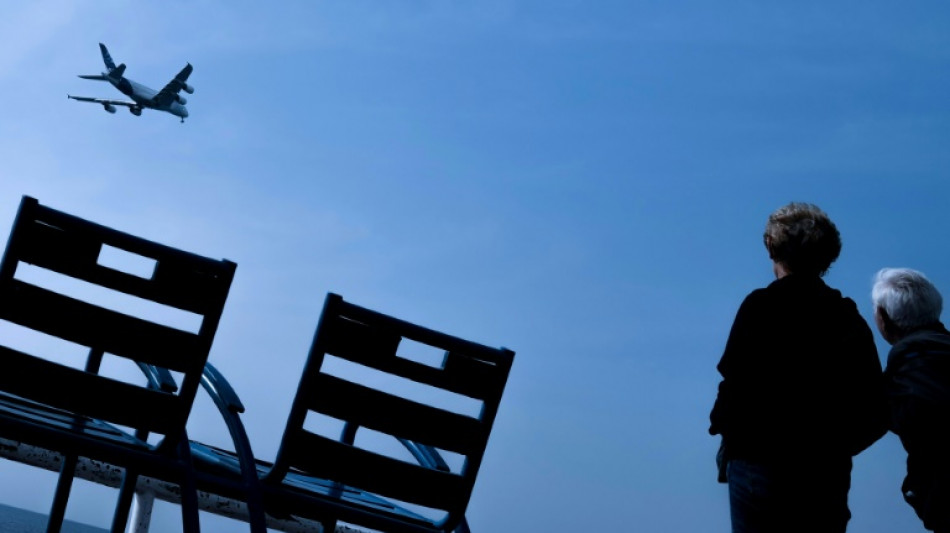
-
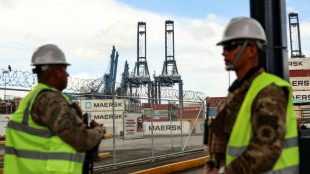 Panama takes control of canal ports from CK Hutchison
Panama takes control of canal ports from CK Hutchison
-
Risk of 'escalation' if Iran attacked: deputy foreign minister
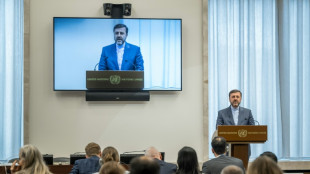
-
 West Indies thrash Zimbabwe at T20 World Cup after piling up 254-6
West Indies thrash Zimbabwe at T20 World Cup after piling up 254-6
-
US forces to complete withdrawal from Syria within a month: sources to AFP

-
 Iran would react 'ferociously' to any US attack, warns of regional conflict
Iran would react 'ferociously' to any US attack, warns of regional conflict
-
Dozens dead in Mexico violence after drug kingpin killed
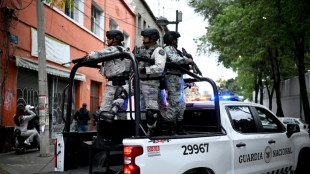
-
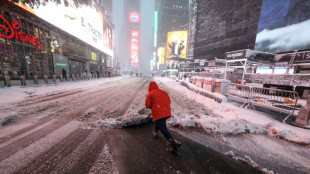 Snowstorm blankets US northeast as New York sees travel ban
Snowstorm blankets US northeast as New York sees travel ban
-
Healthcare crisis looms over Greenland's isolated villages

-
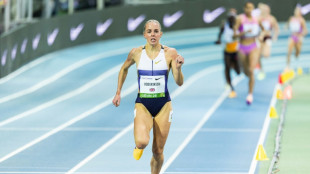 Hodgkinson says breaking 800m record would put her among athletics' greatest
Hodgkinson says breaking 800m record would put her among athletics' greatest
-
Two Russian security personnel were on board France-seized tanker: sources

-
 EU puts US trade deal on ice after Supreme Court ruling
EU puts US trade deal on ice after Supreme Court ruling
-
Hetmyer blasts 85 as West Indies pile up 254-6 against Zimbabwe

-
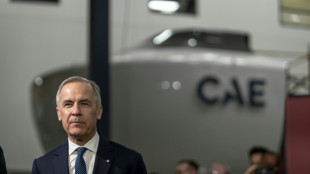 Canada PM heads to Asia seeking new trade partners as US ties fray
Canada PM heads to Asia seeking new trade partners as US ties fray
-
South Africa accepts Trump's new US ambassador
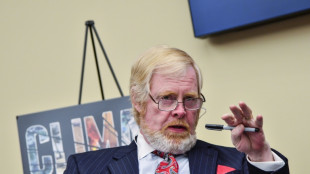
-
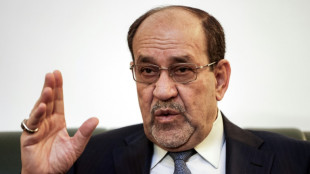 Iraq's Maliki defends PM candidacy, seeks to reassure US
Iraq's Maliki defends PM candidacy, seeks to reassure US
-
UEFA suspend Benfica's Prestianni after alleged racist abuse

-
 Jetten sworn in as youngest-ever Dutch PM
Jetten sworn in as youngest-ever Dutch PM
-
Italy's Enel to invest 20bn euros in renewables by 2028
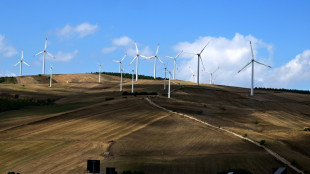
-
 BBC apologises for 'involuntary' Tourette's racial slur during BAFTA awards
BBC apologises for 'involuntary' Tourette's racial slur during BAFTA awards
-
Kristen Bell returns to host glitzy Actor Awards in Hollywood

-
 Iran says would respond 'ferociously' to any US attack
Iran says would respond 'ferociously' to any US attack
-
Venezuelan foreign minister demands 'immediate release' of Maduro
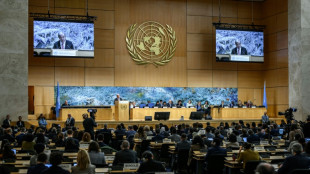
-
 Dane Vingegaard to start season at Paris-Nice in March
Dane Vingegaard to start season at Paris-Nice in March
-
Australia PM backs removing UK's Andrew from line of succession

-
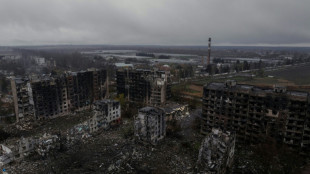 Where do Ukraine and Russia stand after four years of war?
Where do Ukraine and Russia stand after four years of war?
-
Police investigating racist abuse of Premier League quartet

-
 Fiji to start Nations Championship at 'home' to Wales in Cardiff
Fiji to start Nations Championship at 'home' to Wales in Cardiff
-
EU lawmakers to put US trade deal on hold after Supreme Court ruling

-
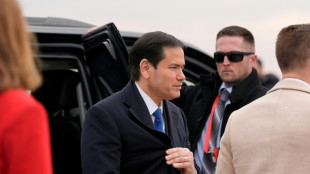 Rubio to attend Caribbean summit as US presses Venezuela, Cuba
Rubio to attend Caribbean summit as US presses Venezuela, Cuba
-
'Ugly' England aim to spin their way to T20 World Cup semi-finals

-
 Nigeria paid Boko Haram ransom for kidnapped pupils: intel sources
Nigeria paid Boko Haram ransom for kidnapped pupils: intel sources
-
Tudor says Tottenham can still beat the drop despite Arsenal loss

-
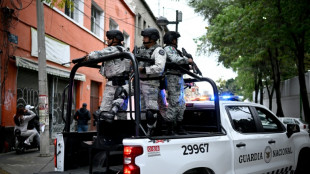 Violence sweeps Mexico after most-wanted drug cartel leader killed
Violence sweeps Mexico after most-wanted drug cartel leader killed
-
France giant Meafou capable of being 'world's best' lock

-
 Stocks diverge, dollar down over Trump tariffs uncertainty
Stocks diverge, dollar down over Trump tariffs uncertainty
-
World champions South Africa announce eight home Tests for 2026/27

-
 Liverpool boss Slot encouraged by Mac Allister's return to form
Liverpool boss Slot encouraged by Mac Allister's return to form
-
India replaces British architect statue with independence hero
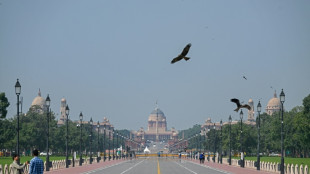
-
 Pakistan warn England's flaky batting to expect a trial by spin
Pakistan warn England's flaky batting to expect a trial by spin
-
Philippines' Duterte authorised murders, ICC told as hearings open
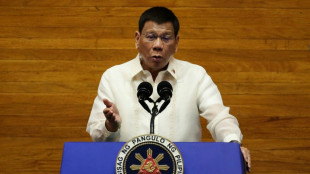
-
 Iran says would respond 'ferociously' to any US attack, even limited strikes
Iran says would respond 'ferociously' to any US attack, even limited strikes
-
New Dutch government sworn in under centrist Jetten
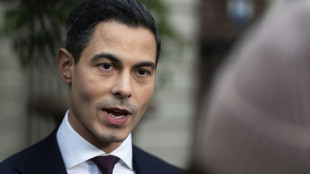
-
 What the future holds for the CJNG cartel after leader killed
What the future holds for the CJNG cartel after leader killed
-
ICC kicks off pre-trial hearing over Philippines' Duterte
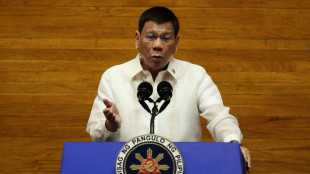
-
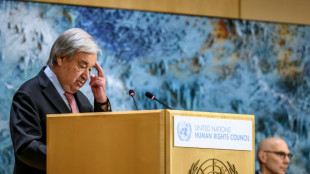 UN chief decries global rise of 'rule of force'
UN chief decries global rise of 'rule of force'
-
Nemesio Oseguera, the brutal Mexican drug lord known as 'El Mencho'
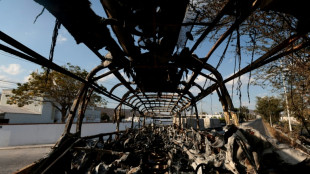
-
 Senegal's Sahad, radiant champion of 'musical pan-Africanism'
Senegal's Sahad, radiant champion of 'musical pan-Africanism'
-
New York orders citywide travel ban as major storm hits US
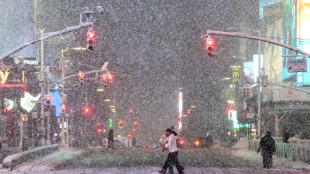
-
 'Considered a traitor': Life of an anti-war Ukrainian in Russia
'Considered a traitor': Life of an anti-war Ukrainian in Russia
-
South Korea and Brazil sign deals on K-beauty, trade
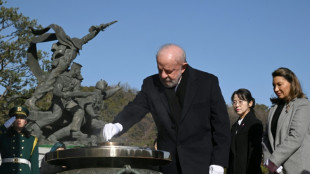

Fly less? Go vegan? How people can take climate action
Individuals along with economy-wide efficiencies can make a major difference in the drive to avert the worst of global warming, UN climate experts say, estimating that sharp cuts to demand for energy-guzzling services could slash emissions up to 70 percent by 2050.
Avoiding airplanes, eating less meat, insulating your home could all make a dent, particularly when broad swathes of societies embrace change, says the United Nations Intergovernmental Panel on Climate Change.
While research often focuses on cutting emissions in the supply of goods and services -- energy generation, transport, agriculture, construction -- the IPCC has for the first time dedicated a whole chapter of its climate solutions report to the demand that drives these industries.
"Having the right policies, infrastructure and technology in place to enable changes to our lifestyles and behaviours can result in a 40-70 percent reduction in greenhouse gas emissions by 2050," said Priyadarshi Shukla co-chair of IPCC working group that produced the 3,000 page report.
But where can "this untapped potential", as Shukla calls it, be found?
- Day-to-day choices -
"Avoid, shift, improve" -- these are the key ways to curb demand, the report says.
You can avoid energy-intensive behaviour, switch to low-carbon technologies and improve the efficiency of existing tech.
In general, there are plenty of opportunities for improvement in the ways people travel from point A to point B.
You can change an internal combustion engine car to an electric one ("improve"), or even "shift" your daily commute to cycling or walking.
The biggest potential for avoidance is reducing long-haul flights. If people took fewer long distance flights and took the train where possible, overall aviation emissions could be reduced by 10 to 40 percent by 2040.
Meanwhile, increasing energy efficiency in homes and other buildings takes first place in the "improve" category.
And the most important "shift" you can make is to adopt a plant-based diet. But becoming a vegetarian or even vegan would have less of an emissions impact than cutting out one long-haul flight a year.
The report also highlights the need to reduce all types of waste, from energy or food for example.
"Choosing low-carbon options, such as car-free living, plant-based diets without or very little animal products, low-carbon sources of electricity and heating at home as well as local holiday plans," can reduce an individual's carbon footprint by up to nine tonnes of CO2 equivalent, says the IPCC.
- Unequal -
Most people in the world never take long-haul flights in the first place and do not have access to nutritious food.
Billions of people have a carbon footprint far below nine tonnes of CO2 equivalent.
For example, the average carbon footprint per inhabitant in Afghanistan is less than one tonne, according to the report, while in most western developed nations it is well over 10 tonnes.
And within countries there can also be an enormous split between the lavish energy consumption of the rich and the meagre carbon footprint of poorer people.
In fact, about half of the world's emissions can be attributed to the consumption of the richest 10 percent of the global population, the report said.
At the bottom of the wealth pyramid, the poorest half of the world contributes around 10 percent of consumption emissions.
"Wealthy individuals contribute disproportionately to higher emissions and have a high potential for emissions reductions while maintaining decent living standards and well-being," the report said.
- Beyond behaviour -
The responsibility for transforming the world's energy use and economic system to deal with climate change cannot be borne on the shoulders of individuals alone, the report stresses.
While people can make a difference with their lifestyle choices, the IPCC says transformative change involves more than just individuals' consumption choices.
There also need to be shifts in culture and social norms, business investment, political drivers from institutions, and changes in infrastructure.
D.Khalil--SF-PST



